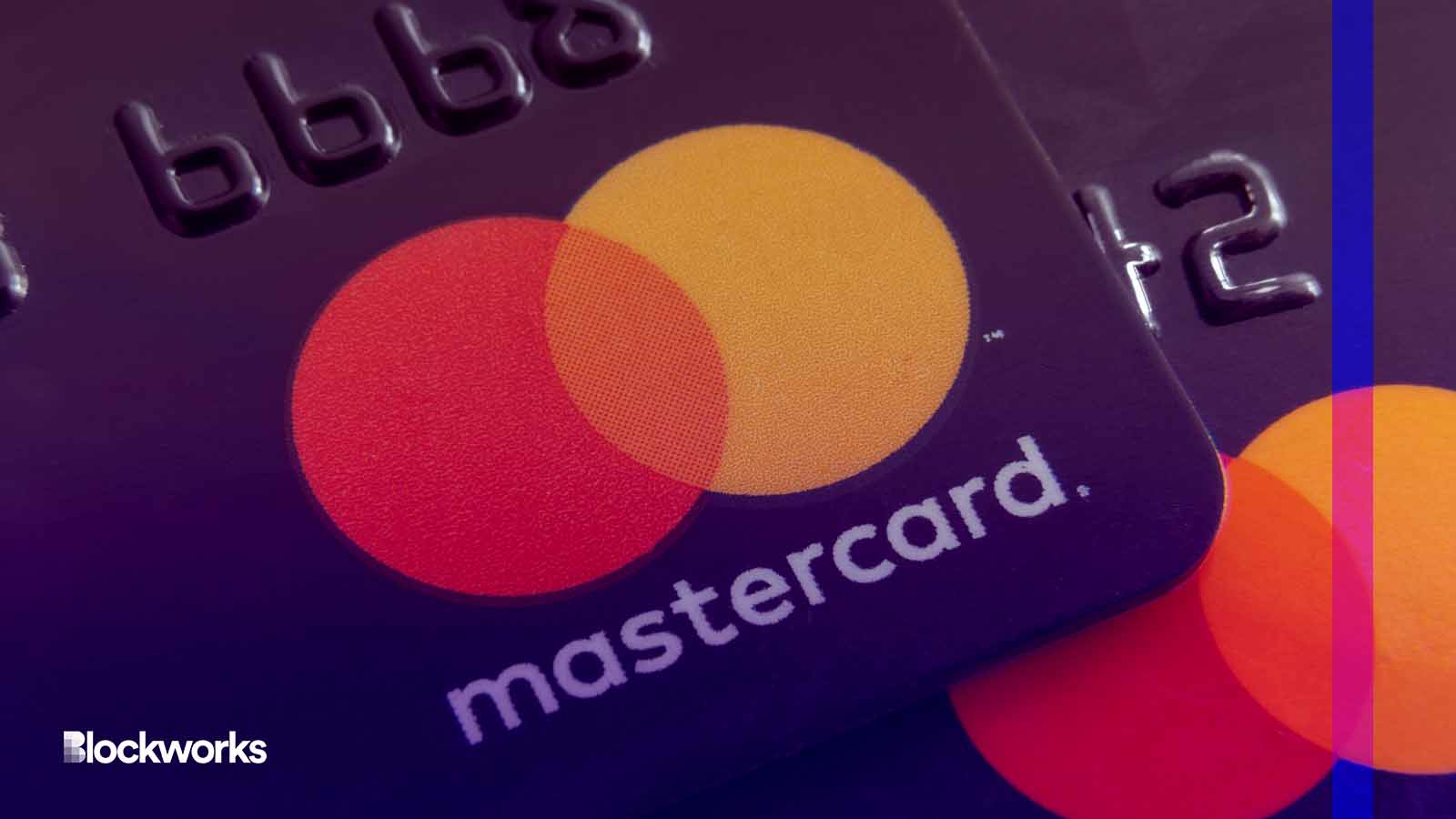Mastercard Doubling Down on Crypto, Blockchain Efforts With New Offering
The payments giant is teaming up with Aptos Labs, Ava Labs, Polygon and the Solana Foundation to reach application developers

garmoncheg/Shutterstock modified by Blockworks
Mastercard is looking to create infrastructure necessary to better attest blockchain transactions as regulation around the sector remains a work in progress, the company said Friday.
Called Mastercard Crypto Credential, the effort would define verification standards and offer technology needed for various use cases across the segment.
Central banks and financial institutions have sought to address security and compliance vulnerabilities as the scope of blockchain technology has evolved, Raj Dhamodharan, Mastercard’s head of crypto and blockchain, wrote in a blog on the company’s website.
“But to fully implement these rules and build scalable use cases, we need a way for trusted, compliant and verifiable interactions to take place on public blockchain networks,” he added in the post.
The level of verification needed for someone to receive an NFT, for example, differs greatly from the authentication required to transfer digital assets to and from crypto wallets, the company said.
Mastercard Crypto Credential would provide straightforward aliases to help consumers more easily share wallet addresses, Mastercard added in the blog post, and use metadata to define wallet attributes to ensure only intended transactions are completed.
The new offering would also utilize CipherTrace — a crypto intelligence firm it acquired in 2021 — to help verify addresses and support compliance with cross-border transaction regulations.
Aptos Labs, Ava Labs, Polygon and the Solana Foundation are set to help bring Mastercard’s new offering to application developers.
A Mastercard spokesperson did not immediately return a request for further comment.
The news comes as Mastercard and rival Visa continued to sign new crypto card deals at the beginning of 2023 despite turbulence in crypto markets.
Binance and Mastercard launched a card in Brazil in January, for example, that allows the country’s users of the exchange to make purchases and pay bills with cryptocurrencies.
Reuters reported in February that Mastercard and Visa would pause partnerships with crypto firms following various bankruptcies in the space, citing people familiar with the matter.
Visa denied the report, telling Blockworks at the time it would continue to monitor crypto-related regulatory developments. The company launched a debit card with Gate Group, the firm behind crypto exchange Gate.io, about a week later.
Dhamodharan told Reuters more recently that the company intends to expand its crypto card programs and is “quite enthusiastic” about blockchain technology more broadly.
Mastercard continues support of industry startups
Mastercard also added six fintech companies to its Start Path Digital Assets program on Friday. The initiative is designed to give startups access to the payment giant’s channels and customers, as well as to technical collaboration.
The program was founded in 2014, and more than 350 companies across 42 countries have so far participated.
New selections include Axelar, Cheeze Inc., Coala Pay, Qonbay.io, RociFi Labs and Suberra.
Companies chosen for the program “have a demonstrated product-market fit focused on digital assets, cryptocurrencies, blockchain value-added services and the metaverse,” according to Mastercard.
Axelar partnered with DeFi protocol Osmosis last year on a “one-click” bridge that runs on Ethereum.
Get the news in your inbox. Explore Blockworks newsletters:
- The Breakdown: Decoding crypto and the markets. Daily.
- 0xResearch: Alpha in your inbox. Think like an analyst.






